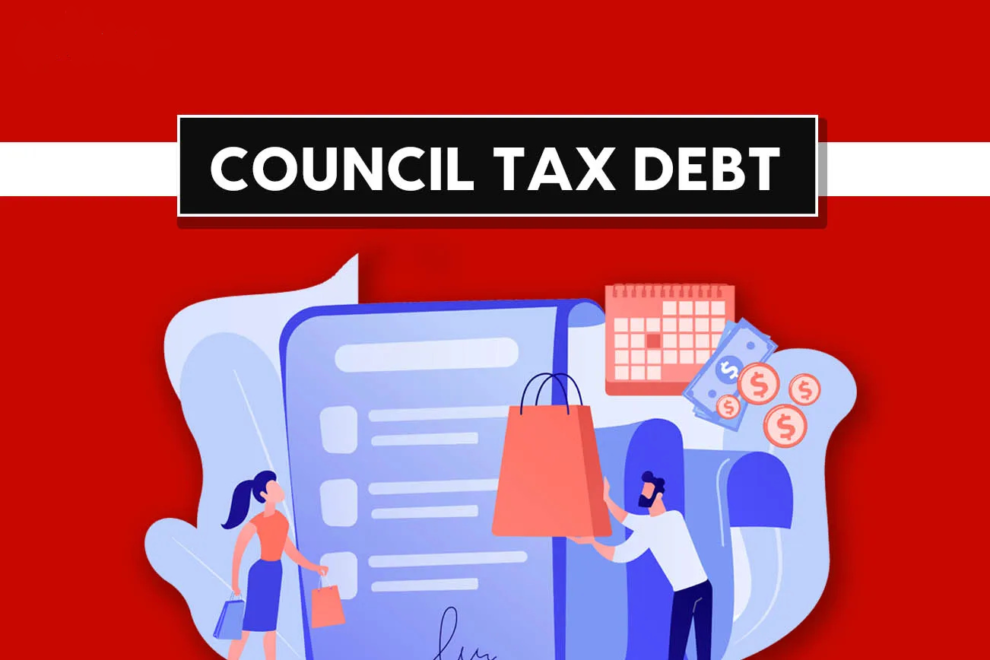Missing a council tax payment might not seem important initially, but the consequences can quickly escalate if left unchecked, turning into council tax arrears. What starts as a simple oversight can spiral into a severe financial headache, affecting your credit score and even leading to legal action. Ignoring this essential obligation does not make it disappear; it only makes the situation more complicated and costly.
This post will explore the potential consequences of not paying your council tax on time. You will discover how local councils handle arrears, the steps they take to recover unpaid taxes, and the escalating measures that can affect your financial well-being. We’ll also discuss the options to resolve outstanding payments before they lead to more severe repercussions.
Understanding what happens when council tax goes unpaid is crucial. You can take proactive steps to address any issues, avoid unnecessary penalties, and support your financial stability by being informed. Let us dive in and uncover what happens when you miss a council tax payment—and how to prevent small mistakes from becoming big problems.
Missing a Council Tax Payment – What Happens First?
Missing a council tax payment can be a stressful and overwhelming experience, but understanding the immediate steps that follow can empower you to take control of the situation before it escalates. Knowing what to do next is crucial in preventing further complications, Whether due to an unexpected financial setback, oversight, or a change in your circumstances.
Immediate Consequences and Understanding the Process
When you miss a council tax payment, your local council initiates a structured process to recover the overdue amount. The first step typically involves sending you a Reminder Notice shortly after the missed payment date. This notice is an official prompt informing you of the outstanding amount and providing a seven-day window to settle the debt. It’s essential to act swiftly upon receiving this Reminder to avoid additional penalties.
Suppose you pay the owed amount within seven days. In that case, you can continue with your original payment schedule without further issues. However, failing to pay within seven days may result in losing the right to pay by instalments, meaning the total remaining balance for the year becomes due immediately. This sudden increase in the amount you owe can exacerbate your financial strain, making it even more challenging to manage your obligations.
Continued non-payment can lead to a court summons and a liability order, granting the council legal power to collect the debt through wage deductions or enforcement agents (bailiffs), who may add fees and seize possessions to cover the outstanding amount. These steps can have severe financial and personal consequences, including stress, loss of property, and a damaged credit rating. A damaged credit rating can affect your ability to secure future loans, mortgages, or employment opportunities. Additionally, the stress and anxiety caused by financial instability can take a toll on your mental and physical health, affecting your overall quality of life.
Actionable Steps to Resolve and Seek Support
Facing a missed council tax payment requires prompt and proactive measures to mitigate the consequences and regain financial stability. Here are actionable steps you can take to navigate through the situation effectively:
- Stay Calm and Assess Your Financial Situation
The first and most crucial step is to remain calm. Panicking can cloud your judgment and make it harder to find a solution. Take a moment to evaluate your current financial status:
- Review Your Budget: Identify your income sources and essential expenses to determine how much you can pay for your council tax debt.
- Prioritize Payments: Ensure essential bills like rent, utilities, and food are covered before allocating funds to council tax.
- Contact Your Local Council Immediately
Don’t wait for further notices or penalties to accumulate. Reach out to your local council as soon as possible to discuss your situation:
- Explain Your Circumstances: Whether you’re facing temporary financial hardship, job loss, or other challenges, providing a clear explanation can help the council understand your situation.
- Request a Payment Plan: Many councils offer tailored payment arrangements to spread the debt over a more manageable period, reducing monthly financial pressure.
- Inquire About Support Programs: Ask about available assistance programs or temporary relief measures to help you manage your debt.
- Seek Professional Financial Advice
Navigating financial difficulties alone can be challenging. Seeking advice from professionals can provide you with strategies and resources to manage your debt effectively:
- Citizens Advice: Offers free, confidential advice on managing debt, budgeting, and negotiating with creditors. They can help you understand your rights and explore available options.
- MoneyHelper: Provides tools and guidance on financial management, including debt reduction and budgeting tips.
- Debt Advisory Services: Consider reaching out to accredited debt advisory services that can offer personalized plans to help you manage and repay your debts.
- Explore Council Tax Reduction and Exemptions
Depending on your circumstances, you may qualify for a Council Tax Reduction or other exemptions that can lower your bill:
- Council Tax Reduction: If you’re on a low income, disabled, or have specific household circumstances, you might be eligible for a reduction. Contact your local council to apply and provide the necessary documentation.
- Exemptions for Students and Disabled Individuals: Full-time students are generally exempt from paying council tax, and individuals with disabilities may qualify for additional reductions. Ensure you check your eligibility and apply accordingly.
- Consider Setting Up a Direct Debit
Setting up a Direct Debit can automate your council tax payments to prevent future missed payments, ensuring they are deducted directly from your bank account on agreed dates. This method reduces the risk of forgetting a payment and helps maintain a consistent payment schedule:
- Benefits of Direct Debit:
- Automation: Payments are made automatically, eliminating the need for manual intervention.
- Budgeting Ease: Fixed payment dates can help you plan your monthly finances more effectively.
- Potential Discounts: Some councils offer small discounts for setting up a direct debit, providing additional savings over time.
- Utilize Available Resources for Support
Beyond immediate actions, leveraging available resources can provide long-term support and strategies to manage your council tax payments more effectively:
- Local Council Websites: Your council’s website is a valuable resource for information on payment options, support schemes, and contact details for assistance.
- Financial Counseling Services: Organizations like StepChange Debt Charity and National Debtline offer free debt advice and support to help you create a manageable repayment plan.
- Community Support Programs: Some local communities have support groups or initiatives that provide financial assistance or guidance to needy residents.
Financial hardships can happen to anyone. Whether you’re facing job loss, unexpected medical expenses, or family changes, knowing that you’re not alone and that support is available can make a significant difference. For instance:
- Job Loss or Reduced Income: Sudden unemployment can disrupt your ability to meet financial obligations. Contacting your council promptly can help you secure temporary payment arrangements.
- Unexpected Medical Expenses: Medical emergencies can strain your budget. Seeking advice from financial counsellors can help you prioritize payments and explore available support.
- Family Changes: Events like marriage, divorce, or additional dependents can impact your finances. Inform your council of these changes so they can adjust your payment plan accordingly.
Missing a council tax payment doesn’t have to spiral into an unmanageable debt. Taking immediate and informed actions can mitigate the consequences and find a path to financial stability. Remember, seeking help is a sign of strength, not weakness. Utilizing available resources and maintaining open communication with your local council can help you navigate challenging times successfully.
Additional Resources to Help You Manage Missed Council Tax Payments
- Citizens Advice: Comprehensive advice on debt management and financial support.
- MoneyHelper: Tools and guidance for budgeting and managing finances.
- StepChange Debt Charity: Free debt advice and support services.
- National Debtline: Free advice on dealing with debt and managing repayments.
By understanding the process and taking proactive steps, you can effectively manage missed council tax payments and regain control over your financial situation. Empower yourself with knowledge, seek needed support, and make informed decisions to meet your financial obligations without undue stress.
The Second Reminder and Final Council Tax Notice
Facing a missed council tax payment can be stressful, and ignoring the first Reminder only escalates the situation. Understanding what happens next is crucial to avoid further complications. If you do not pay your council tax after the first Reminder, the local council will take added steps to recover the amount owed.
What If You Miss the First Reminder?
Not responding to the first reminder notice does not mean you are out of options, but it does bring you closer to more profound consequences. Here is what happens if the payment isn’t made after the first Reminder:
- Second Reminder Issued: The council may send a second reminder notice if you miss another payment later in the year. This notice also gives you seven days to pay the outstanding amount.
- Limit on Reminders: Councils typically issue up to two reminder notices in a fiscal year. After the second Reminder, missing another payment can lead to immediate demands for the total annual balance.
- Final Notice: If you do not pay council tax after the second Reminder, the council will send a final notice. This notice cancels your right to pay in instalments, and the remaining council tax bill for the year becomes due immediately.
To prevent reaching the stage of final notices and potential legal action, consider adjusting your council tax payment methods:
- Set Up a Council Tax Direct Debit: Automating your payments ensures they are made on time, reducing the risk of missed payments.
- Explore Payment Options: Try various methods, such as online portals, telephone banking, or in-person payments, to find the most convenient way to pay council tax.
- Monitor Your Payments: Keep track of your payment schedule and set reminders to stay ahead of due dates.
By proactively managing how you pay council tax and responding promptly to any reminders, you can keep a good standing with your local council. Taking advantage of convenient council tax payment methods, like setting up a council tax direct debit, can simplify the process and help you avoid the stress of missed payments and escalating consequences.
Summons to Council Tax Court and Liability Orders
Ignoring the final notice for unpaid council tax is a serious matter that can have significant legal consequences. Suppose you wait to pay your council tax after the final Reminder. In that case, your local council can escalate the situation by involving the courts to recover the debt. Understanding what a summons and a liability order entail is crucial to avoid severe penalties and added costs.
What Is a Summons?
When you disregard the final notice, the council can apply to the Magistrates’ Court for a liability order against you. This means they are taking legal action to confirm that you handle the unpaid council tax. You will receive a summons for a court hearing and a legal document informing you of the hearing’s date, time, and location.
The summons outlines the amount you owe, including any additional costs incurred due to the legal process. These extra expenses, such as court fees and administrative charges, increase the total amount you must pay. You may avoid the hearing altogether by paying the outstanding council tax and associated costs before the court date.
Key Points:
• Legal Action Initiated: The council applies to the court for a liability order.
• Receipt of Summons: You are officially summoned to attend a court hearing.
• Additional Costs: Court fees are added to your existing council tax debt.
What Is a Liability Order?
A liability order is a court’s confirmation that you are legally responsible for the unpaid council tax. At the hearing, the magistrate reviews the evidence presented by the council. The court typically issues the liability order unless you have a valid defence—such as proof of payment or a legal exemption.
Issuing a liability order grants the council enhanced powers to collect the debt. They can take more severe recovery actions, which may include:
- Deductions from Income: The council can instruct your employer to deduct payments directly from your wages or salary.
- Benefit Deductions: If you receive benefits, payments can be taken directly to cover the debt.
- Enforcement Agents (Bailiffs): Bailiffs may visit your property to collect the debt or seize goods equal to its value.
- Charging Order on Property: For homeowners, the council can secure the debt against your property, potentially leading to its sale.
- Bankruptcy Proceedings: In extreme cases, the council may initiate bankruptcy proceedings against you.
These actions can have long-lasting effects on your financial stability and credit rating. It’s crucial to address unpaid council tax before it reaches this stage.
Key Points:
- Court Confirmation: The liability order legally confirms your debt.
- Enhanced Recovery Powers: The council can take more vital actions to collect the unpaid council tax.
- Serious Consequences: Actions like wage deductions and property charges can impact your financial well-being.
Preventing Legal Action
Proactively managing your council tax payments is essential to avoid the stress and complications of court proceedings. Setting up a council tax direct debit is one of the most effective ways to ensure your payments are made on time. This method automates your payments, reducing the risk of forgetting or delaying them.
If you need a method different from direct debit, explore other council tax payment methods such as online payments, telephone banking, or paying in person at designated locations. These options offer flexibility and help you stay on top of your obligations.
Take Action:
- Contact the Council: If you need help to pay, contact your local council immediately to discuss possible payment arrangements.
- Utilize Payment Methods: Choose a payment method that fits your financial situation to consistently pay council tax on time.
- Seek Advice: If you’re facing financial difficulties, consider seeking advice from financial counsellors or support services.
By understanding the seriousness of a summons and liability order and managing your payments effectively, you can prevent legal action and maintain your financial stability. Remember, addressing the issue promptly is always better than facing the escalating consequences of unpaid council tax.
What Happens After a Council Tax Liability Order?
When you fail to pay your council tax, the local council may apply for a liability order to the court. This legal action grants the council additional powers to recover the unpaid debt. Understanding what happens after a liability order is crucial to prevent the situation from escalating further. One of the most significant consequences is the involvement of bailiffs or enforcement agents.
What to Expect from Bailiffs
Once a liability order is in place, the council can instruct bailiffs, also known as enforcement agents, to recover the unpaid council tax. This step can be daunting, but knowing what to expect can help you navigate the process more effectively.
The Role of Bailiffs
Bailiffs are authorized to collect debts on behalf of the council. They may visit your home to discuss payment arrangements or, if necessary, seize possessions to cover the amount owed. Their involvement can significantly increase the total debt due to additional fees and charges.
Fees and Charges
The enforcement process involves several stages, each with associated fees that add to your overall debt. These fees are regulated by law:
- Compliance Stage Fee: When your case is first passed to enforcement agents, a fee of £75 is added to your debt. You will receive a Notice of Enforcement, allowing you to arrange a payment plan.
- Enforcement Stage Fee: If you do not respond to the initial notice, bailiffs will visit your home, adding an extra £235 to your debt. This visit aims to secure payment or take control of goods to sell and settle the debt.
- Sale or Disposal Stage Fee: If payment is still not made and the agents proceed to seize and sell your belongings, a fee of £110 is added. Additional costs may also be incurred for storing and selling your goods.
These fees can quickly accumulate, making your debt much higher than the original missed council tax payments. It’s essential to address the situation promptly to avoid these escalating costs.
Rights of Entry
Understanding what bailiffs can and cannot do regarding entry into your property is vital:
What Enforcement Agents Can Do:
- Enter Through Unlocked Doors: They can enter your home through an open or unlocked door without force.
- Peaceful Entry: They may enter if you invite them in or if they find an easy entry point.
- Take Control of Goods Outside: They can seize possessions outside your home, such as vehicles, to settle the debt.
What Enforcement Agents Cannot Do:
- Force Entry on First Visit: They cannot break down doors or windows during their initial visit.
- Enter If Vulnerable Individuals Are Present: They must not enter if the only people present are children or vulnerable adults.
- Seize Essential Items: They cannot take essential household items necessary for basic living, like clothing, bedding, or kitchen appliances.
Knowing your rights helps you manage bailiff interactions and prevents them from overstepping legal boundaries.
Avoiding Bailiff Action
To prevent the situation from escalating to this stage, it’s crucial to manage your council tax payments effectively:
- Pay Your Council Tax on Time: To avoid arrears, ensure you meet payment deadlines. If you’re struggling with payments, consider alternative council tax payment methods.
- Set Up a Council Tax Direct Debit: This automated payment method ensures your council tax is paid on time each month, reducing the risk of missing payments. A council tax direct debit can make budgeting easier and prevent late payment penalties.
- Contact the Council Early: If you need help paying, contact your local council immediately. They may offer a payment plan or suggest other solutions to help you manage your debt.
- Seek Financial Advice: Organizations like Citizens Advice can provide guidance if you struggle to pay your council tax. They can help you create a budget, explore debt relief options, and communicate with creditors.
By proactively managing your council tax obligations and utilizing convenient council tax payment methods, you can avoid the stress and additional costs of bailiff enforcement.
**INTERNAL LINK**
For more detailed strategies on managing your council tax and preventing arrears, refer to our guide on Effectively Managing Your Council Tax Bill.
Financial Support & Relief
Suppose more than setting up a payment plan is required. In that case, seeking financial support and relief can provide additional avenues to manage your council tax debt. Several organizations and charities assist individuals struggling with council tax payments, ensuring you have the resources needed to navigate financial difficulties.
Professional Advice Support Providers:
Citizens Advice Citizens Advice offers free, confidential advice on various issues, including council tax. Their experts can help you understand your options, negotiate with the council, and apply for relevant exemptions or discounts.
- Website: Citizens Advice Council Tax
- Services: Personalized advice, application assistance, and support in negotiating payment plans.
StepChange Debt Charity StepChange provides free advice and support, helping you create a budget and manage your debts effectively. They offer tailored solutions, including debt management plans, to help you pay off your council tax arrears.
- Website: StepChange Debt Charity
- Services: Debt management plans, budgeting help, and free expert advice.
National Debtline National Debtline offers free and impartial advice to help you tackle your debts, including council tax arrears. Their advisors can guide you through negotiating with your council and accessing support schemes.
- Website: National Debtline
- Services: Debt advice, budgeting support, and assistance with debt negotiations.
The Salvation Army provides financial assistance and support to individuals and families in need. It can offer grants and other forms of help to cover council tax payments during financial hardships.
- Website: The Salvation Army Financial Assistance
- Services: Financial grants, debt advice, and support services.
GOV.UK: Council Tax Reduction If you’re on a low income or receiving certain benefits, you might qualify for a Council Tax Reduction (CTR). This government program reduces the council tax you owe, making it more affordable.
- Website: Council Tax Reduction on GOV.UK
- Services: Information on eligibility criteria, how to apply, and available support levels.
Benefits of Seeking Financial Support:
- Expert Guidance: Financial advisors and support organizations provide professional advice tailored to your situation.
- Access to Resources: These organizations can connect you with additional resources and support services to help manage your debt.
- Negotiation Assistance: Professionals can negotiate with your council on your behalf, potentially securing more favourable repayment terms.
For individuals on a low income, it’s worth exploring council tax relief for low-income households. You might be eligible for reductions or exemptions that significantly lower your council tax bill. For more information, refer to our detailed guide in Council Tax Rebates: How to Claim and Save Money












Add Comment